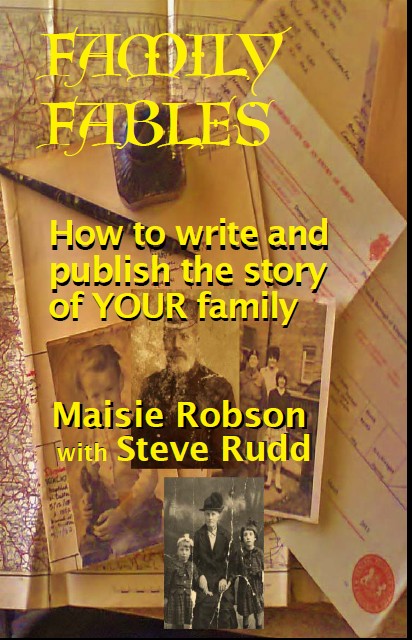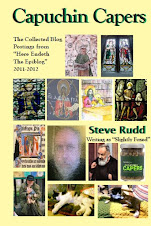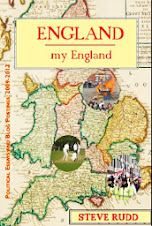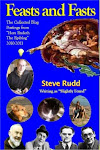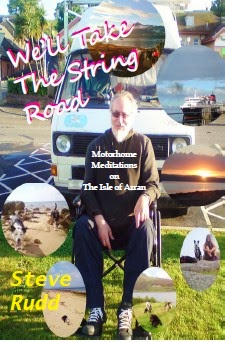It has been a busy week in the Holme Valley.
All week we have been counting down the hours to the half term holiday and,
with it, the possibility of going off in the camper van so that Misty and Zak
can climb some more Wainwrights, and of course when it finally got to Friday,
the weather had broken and it was more like October than May. So our plans were
temporarily thwarted, and for the last three days we’ve been watching the rain
sheeting down outside and listening to it drumming on the conservatory roof.
This has, necessarily, curtailed Matilda’s excursions into
the outside world. On the few occasions where she has actually ventured onto
the decking, all she has done is to scuttle as fast as she can to the end where
Deb has fixed a tarpaulin across to provide shelter and shade when she sits out
there having her breakfast. From underneath this relatively weather-proof
vantage point, Matilda then glares at the rain for a few minutes until she
realises, reluctantly, that glowering is not going to make it fair up, before
scuttling back equally quickly through the downpour to the conservatory door,
and mewing loudly to be let back in. She
then spends the rest of the day asleep on her Maisie-blanket on her chair next
to the TV, transferring at some point in the evening on to the settee next to
the stove, via a stop-off at the food dish. No wonder she’s the size of a
house-end.
I could have told her already that glowering at the bad
weather changes nothing, because I have been doing it for years. Even Misty, who
is normally impervious to weather, has thought twice about going down the steps
on a morning to do her usual three mad circuits of the garden. She is, however, still up for the more formal
exercise of a proper “walkies”, and dashes madly from door to door as soon as
Deb shows any signs of getting ready. She’s probably done about half a mile
before she even sets off, most days.
As for me, I too have been up and down like a dog at a fair
this week, what with the press launch of Ghost
Hunting With Peter Underwood, the imminent arrival of Blood in the Air: The Chronicles of Kari True, and an unexpected
extra press release to do for Gez regarding the event he is doing at The
Orangebox in Halifax on 30th May (6pm-9pm, if you wanted to go
along). At least the man came from Clarks and fixed the housing of my wheelchair arm, so I no
longer had to type everything at a 45 degree angle. If I needed any more
obvious illustration of the inherently pointless nature of my existence,
though, it can be summed up by two separate but linked events this week, for
which I found myself inventing The Golden Graham awards for taking the biscuit.
The first was the BBC journalist who asked to be taken off
our list for press releases. Forgive me for having the temerity to breathe, but
I sort of thought the point of being a journalist was that you made yourself
available for news of all sorts from all sources, on the offchance that there
might be a story there. And if it’s not for you, or of no interest, just delete
the sodding thing, it’s only an email, after all.
The second was the very famous lady novelist. As part of the press list for Ghost Hunting, the author gave us a list of his own contacts,
including some famous names (last week, for instance, I was talking about
writing a letter to Uri Geller) Also on the
list was a very famous lady novelist who was apparently a slam-dunk to write a
review of Ghost Hunting somewhere ...
so a review copy and press pack duly went off to her. In the post on Friday lunchtime came a very
nice letter, saying that she very much admired the production and it was a
lovely book, etc etc, and the author was a great personal friend etc etc, but
she couldn't review it as she is far too busy and therefore "I'll just be
stingy and keep this as my own personal copy..." Thank you, very famous lady novelist, that
will be £11.99.
On the same day, I was startled by a knock on the door and a
man with a clipboard appearing in the lobby:
“Does Debbie Nunn live here?” he asked.
“Yes,” I replied, wearily, “what’s she done now?”
It turned out that he was a courier and some piece of
survival kit for the proposed upcoming trip had arrived for Deb. It had been
sent out by the people who’d supplied it with just Debbie’s name and surname,
and Huddersfield, and the postcode, but
fortunately the courier had been here before with other stuff for her, and was
intelligent enough to remember the house and put two and two together. So there
you go. At last! A thinking man’s courier. DFD, I think their name was.
Because her planned trip to try out all this gear has been
thwarted by the weather, the desire to forage, which obviously burns strongly
in her, has manifested itself in other ways. On Saturday she returned with
Misty from their “walkies” bearing a huge chunk of fungus in a carrier bag.
This was a lump of “Dryad’s Saddle”, which sounds rather like an embarrassing
medical complaint, but is, in fact, allegedly edible. Its Latin name is Polyporous Squamosus which is a fairly roundabout way of saying
disgusting and inedible. We have subsequently discovered that you are only
supposed to harvest the young ones, not the old hoary warty specimens that have
survived many a winter gale, feeding off the dead hearts of trees.
Having washed it, in itself a considerable feat since it was
the size of a dinner plate, and checked it for (non-vegan) maggots, I then
tried to cut it up to shallow fry it. I trimmed off the stalk and the rind,
which apparently you are supposed to do as a precaution and then – having
switched to a bigger knife with a serrated edge, finally managed to cut it into
strips and set about cooking them. Half
an hour later, it was still going. I
suggested to Deb that she might like to fish out a bit and try it, since all
that seemed to be happening, as far as I could see, was that the outside bits
were getting more crisp and burnt black, but it still seemed to have the same
consistency as when it was raw. An
attempt by her to chew on half a slice confirmed this. Sadly, her free breakfast was not to be. It
was like chewing through a leather strap, albeit one sautéed in olive oil,
seasoned with “Season-All” and basted in garlic. So Deb ended up having Marmite on toast and
the mushroom went out for the badger.
Let’s hope we don’t get back from our trip, if it ever happens, and find
Brenda stretched out on the decking next to her bowl.
So, it’s been a manky old week, weather-wise, and for that I
blame UKIP, since God is obviously annoyed by their success in the local
elections, and has sent it to punish us.
And as for UKIP’s success, It is the fault of
the Labour party because they have consistently failed to challenge the false
frame of reference put forward by all of these right-wing crypto-fascists, from
the Tories to those parties who are two stops beyond Barking and well off the
bus route.
Many people in Britain today think that "there's too many of 'em (brown people, though the party hierarchies are careful not to actually say this - except for UKIP, whose oeuvre consists of a series of unguarded moments) over here, taking our jobs and our resources, and that all you have to do is rock up at Dover docks to be handed the keys to a council house and entitlement to a full set of benefits.
Plus, people are filled with hatred for the corrupt and venal antics of existing MPs over pay and expenses. If you are waiting for a bus in the rain at 6.30AM to take you to some crappy, low-paid, zero hours contract job and you read in the paper that your MP has just claimed £6000 for a Swarkovski crystal duck feeder, you are (justifiably, in my view) livid.
And many people are fearful and distrustful of the EU political project and think that the idea of Europe has gone way too far beyond the original concept of an international trade agreement. Put them together and what do you get? Bippity Boppity Boo, a vote for UKIP.
Instead of saying about immigration "hang on, this is all bollocks, and the majority of legal immigrants are not a drag on the system, but provide positive economic benefits" and challenging the perception that all brown people come from Bongo Bongo Land, Labour has "apologised" for opening "the floodgates" when at the time they signed up to it, it was actually the right thing to do (read Jonathan Portas on the subject). So, that's one argument lost before we started.
On Europe, Labour have refused to even consider a referendum, which comes across to the people who have (admittedly misguided in come cases) concerns about the EU political project as Labour saying "there there, proles, we know best" and creates yet more sunshine for UKIP's haymaking. And finally, on policy, Labour has stuck so rigidly to its idea (I'm being charitable here, and assuming some thought went into it) of being the Tories but in slightly cheaper suits, that the public now views the entire Westminster community as being out of touch and mired up to their necks in sleaze. In the old Labour party, the structure of people coming up through the ranks from the Union movement at leased ensured that there was some connection and shared experience. I doubt that the skinny latte brigade who "advise" Ed Miliband have ever done a hands turn in their lives.
Many people in Britain today think that "there's too many of 'em (brown people, though the party hierarchies are careful not to actually say this - except for UKIP, whose oeuvre consists of a series of unguarded moments) over here, taking our jobs and our resources, and that all you have to do is rock up at Dover docks to be handed the keys to a council house and entitlement to a full set of benefits.
Plus, people are filled with hatred for the corrupt and venal antics of existing MPs over pay and expenses. If you are waiting for a bus in the rain at 6.30AM to take you to some crappy, low-paid, zero hours contract job and you read in the paper that your MP has just claimed £6000 for a Swarkovski crystal duck feeder, you are (justifiably, in my view) livid.
And many people are fearful and distrustful of the EU political project and think that the idea of Europe has gone way too far beyond the original concept of an international trade agreement. Put them together and what do you get? Bippity Boppity Boo, a vote for UKIP.
Instead of saying about immigration "hang on, this is all bollocks, and the majority of legal immigrants are not a drag on the system, but provide positive economic benefits" and challenging the perception that all brown people come from Bongo Bongo Land, Labour has "apologised" for opening "the floodgates" when at the time they signed up to it, it was actually the right thing to do (read Jonathan Portas on the subject). So, that's one argument lost before we started.
On Europe, Labour have refused to even consider a referendum, which comes across to the people who have (admittedly misguided in come cases) concerns about the EU political project as Labour saying "there there, proles, we know best" and creates yet more sunshine for UKIP's haymaking. And finally, on policy, Labour has stuck so rigidly to its idea (I'm being charitable here, and assuming some thought went into it) of being the Tories but in slightly cheaper suits, that the public now views the entire Westminster community as being out of touch and mired up to their necks in sleaze. In the old Labour party, the structure of people coming up through the ranks from the Union movement at leased ensured that there was some connection and shared experience. I doubt that the skinny latte brigade who "advise" Ed Miliband have ever done a hands turn in their lives.
Coincidentally, largely because
of a combination of Debbie being out late teaching, boredom, and nothing new
worth watching on TV, during the week I re-watched a programme we’d recorded
earlier last year, a documentary about Hitler’s rise to power. We should not forget that Hitler used the
democratic process to actually achieve power in Germany; it was only after he
was elected that he pulled up the rope ladder after him, arrested all his
opponents, and appointed himself as Fuhrer of a thousand-year Reich.
I was struck by the many
congruencies between the approach of Hitler and the Nazis and UKIP’s
campaign. As the HistoryPlace web site succinctly
puts it:
Hitler offered
something to everyone: work to the unemployed; prosperity to failed business
people; profits to industry; expansion to the Army; social harmony and an end
of class distinctions to idealistic young students; and restoration of German
glory to those in despair. He promised to bring order amid chaos; a feeling of
unity to all and the chance to belong. He would make Germany
strong again; end payment of war reparations to the Allies; tear up the treaty
of Versailles;
stamp out corruption; keep down Marxism; and deal harshly with the Jews.
The similarities are obvious. Substitute ”Britain”
for “Germany”, “Europe” for “war reparations” and “Muslims” for “Jews”
and you’ve almost got the UKIP manifesto, such as it is. I’m not saying that Nigel
Farage is Adolf Hitler, far from it. Nor am I saying that UKIP are even now
compiling a list of disused and mothballed Army or RAF bases to be used as
internment camps. But I am saying, and I
challenge anyone to deny it, that we are heading off down a road to right-wing
repression, possibly even dictatorship, based on xenophobic and generally
racist popular support, unless we are very careful about it. The genie was
originally released from the bottle by the Junta trying to look tough on immigration
and it isn’t going to go back in, any time soon. Because unless someone starts
to challenge, and keeps on challenging, the shaky ethos on which UKIP’s support
rests, the only other alternative is that the two major parties will try and
leapfrog each other in a series of meaningless yet ever more reactionary
lurches towards repression.
And what rough beast,
its hour come round at last
Slouches towards Bethlehem to be born…
There was a particularly chilling interview with a market
trader in Rotherham (a town with a relatively high
percentage of British Asians, where there have been flashpoint cases of
“grooming” in recent years) about why he voted UKIP. He said words to the
effect of “there are too many of the wrong sort of people coming over here and
it’s time someone did something about it”.
He declined to elaborate on the “wrong” sort of people when asked by the
interviewer, but it was obvious what he meant.
Of course, now that UKIP have actually been elected onto the council in some areas,
people who voted for them (and people who didn’t) will see how useless they
are, how they fail to get things done, and how their policies will lead to
further cuts - and how, apart from on Europe, they have a policy vacuum, filled
with largely sketchy fruitcake recipes scribbled down by Nigel Farage on the
back of a beer mat. They won’t be able to get by on vague nebulous promises,
and their local reputation might well suffer. Also, many people who voted UKIP
probably didn’t even realise the difference between a European Election, a
Local Election, and a General Election. Pretty much in the same way as they
don’t know the difference between an asylum seeker, a legal immigrant, someone
who was born British but has a different ethnic heritage, and an illegal. So if they were hoping that their UKIP
councillors will rise up en masse and
take us out of the EU, and “send ‘em all home”, they will have a long
wait. The only way that UKIP could do
that would be by winning at a General Election.
The best a UKIP councillor
could do is object to twining with somewhere in Belgium!
However, we should remember that people originally laughed
at Hitler and thought he was a buffoon. Not necessarily the German working
class, but the intellectuals and the intelligentsia derided Hitler and poked
fun at him, probably right up to the week they were arrested. As political
blogger “Beastrabban” observed last weak, by the time you hear the jackboots on
the stairs, it’s usually too late.
So, if there is a lesson, particularly for the Labour Party,
out of all this, it is not to duck the argument on immigration. Labour CAN'T ignore immigration as an issue because, like
it or not, and personally I HATE it, every white van man, racist granny and
bigot in England thinks there's too many of ‘em over ‘ere taking our jobs and houses. All
that will happen if Labour ignores the issue is that they will lose even MORE
heavily than they are currently set to do. What Labour has to do is TAKE
CONTROL OF THE AGENDA and DISPEL THAT MYTH. Even down to things like finding
immigrants who are making a positive contribution to society at the sharp end
and highlighting these cases. A massive positive publicity blitz needed to
correct misapprehensions. Then they need to set out their own sensible
immigration agenda while NEVER CEASING TO POINT OUT THAT THE TORIES AND UKIP
CANNOT BE ANY HARDER ON IMMIGRATION. however much they bang on about it, and
are LYING if they say otherwise.
Apologies for shouting. but really, Labour seems to have a death wish right now. And they need a leader with the common touch who doesn't sound like a posh boy from a Tory school. Sorry to be brutal, but the alternative is five more years of Tory nuclear winter, or even worse Tory/UKIP nuclear winter, and I am not sure even now that it's not too late.
Apologies for shouting. but really, Labour seems to have a death wish right now. And they need a leader with the common touch who doesn't sound like a posh boy from a Tory school. Sorry to be brutal, but the alternative is five more years of Tory nuclear winter, or even worse Tory/UKIP nuclear winter, and I am not sure even now that it's not too late.
As it is, we’re heading back, or
so it seems, at warp factor speed, to the 1930s, and once again, if you think
I’m exaggerating, then consider this extract:
The ruling classes are
vastly concerned to maintain the morale of the workers, perhaps because they
fear that “Satan finds some evil work for idle hands to do”. The best way ever
devised to maintain a man’s morale is to give him useful employment at a fair
wage… That is not some Utopian dream of all sharing alike, but in every
employed person getting a fairer share in the wealth he helps to produce, and
humane provision for such as are unable to work, for any proper reason. There
are innumerable tasks crying out to be done, which would absorb the greater
number of the unemployed, directly or indirectly, and be of the utmost national
value, and the plea that no money can be found to put them in hand is a
deliberate untruth. Millions and millions of pounds are found annually to pay
the most extravagantly rewarded ruling classes on Earth… There is never any
difficulty in finding the millions for these privileges and absurdities, but if
money is wanted to drain our rivers and prevent untold damage and loss by
floods, or for reclaiming thousands of square miles of land that would support
hundreds of thousands of workers, or finishing building ships that would win us
back our maritime leadership, there is a different story! The money could not
be found!
You might be forgiven for thinking this was about the
Somerset Levels in winter 2013/2014, but in fact it is an extract from a letter to
the Birkenhead Advertiser in 1933 and
quoted in SOS: Talks On Unemployment by
S. P. B. Mais in 1934. Mais toured, and
broadcast from, the worst areas of depression and unemployment in the early
1930s, but unlike the perhaps more realistic and cynical appraisals of his near
contemporaries, Orwell in The Road to
Wigan Pier and J B Priestley in his English
Journey, both of which appeared the same year, 1936, Mais is relentlessly
cheerful and optimistic, especially about the many schemes being run to occupy
the time of the unemployed and help them learn new skills, or feed themselves
and their families by growing vegetables and allotments. This is another
argument which still resonates down to the present day, of course, with
zero-hours, workfare, internships, and government schemes designed to remove
people from the official unemployment statistics.
Mais, in his effusions, fell foul of the National Unemployed
Workers’ Movement, who argued, pretty much in the terms used by the Birkenhead
correspondent above, that the schemes were ill-attended and useless, and that
in some cases, (teaching cobbling and boot-repairing for instance) they
actually damaged the prospects of the cobblers and shoe menders in the area who
were still in work, by undercutting their trade, providing the same service for
free. They argued for large scale
infrastructure projects to get Britain
working again. The NUWM is actually quite an interesting movement – it
disbanded itself voluntarily in 1943, when it was a case of all hands on deck
to stop Hitler, but maybe, just maybe, it is an idea whose time has come again,
especially given the dreary backdrop and prospects for politics in the UK today.
Especially if it was the National Unemployed and UNDER-employed Workers’
Movement.
So, somehow, we’ve arrived at Sunday, in a country that, as
the result of the last week, is slightly more fascist and considerably
wetter. I suppose in one sense we
shouldn’t be surprised at the weather – it is, after all, a Bank Holiday
weekend. What used to be known as Whit
Sunday, in fact, before its more boring modern nomenclature became attached. Although
there is some debate on this – if you do the traditional thing of counting the
Sundays from Easter, then it’s next Sunday, not this, but the idea of having
Whitsun in any month other than May just seems…wrong to me, somehow. Anyway, if we do disappear into the wild blue
yonder in the camper next week, this Epiblog might have to serve as next week’s
as well, at least until I can plug back into the internet.
I’ve written fairly extensively on the subject of the
history and traditions of Whitsun before now, even on this blog, so I won’t
bore you by repeating it verbatim. One
of the aspects of it which, traditionally, does appeal to me, however, is its
community nature. Back in the days when
“community” meant something and we didn’t all shut ourselves away in our own
little cells. Especially in the North of
England, Whitsun would be an opportunity for the local Wesleyans to put on a
charabanc to the coast, and the same people who filled it would also have been
in the chapel choir and the brass band and the cricket team, and probably all
worked down the same mill together as well.
In this year of all years, perhaps we should also recall that they
probably joined up together in the local Pals’ battalion, and probably all died
together, as well.
The religious meaning of Whitsun is tied in with the idea of
the Pentecost, when the gathering of Christ’s followers, including the Twelve
Apostles, were filled with the Holy Spirit in (supposedly) the same “Upper
Room” where the Last Supper had been celebrated. Acts 2, 1-16 tells how:
And when the day of
Pentecost was fully come, they were all with one accord in one place.
And suddenly there
came a sound from heaven as of a rushing mighty wind, and it filled all the
house where they were sitting. And there appeared unto them cloven tongues like
as of fire, and it sat upon each of them. And they were all filled with the
Holy Ghost, and began to speak with other tongues, as the Spirit gave them
utterance. And there were dwelling at Jerusalem Jews, devout men, out of every
nation under heaven. Now when this was noised abroad, the multitude came
together, and were confounded, because that every man heard them speak in his
own language.
As with any of the miraculous events recounted in the Bible,
you can either believe that something inexplicable, something supernatural,
maybe even something Holy, happened, or you can dismiss it as a collective
hallucination and mass hysteria. There is not proof, in the way a scientist
would understand the term. It is simply a matter of faith. I would be more
sceptical and cynical myself if I had not also experiences times in my life
when I felt bathed in holy fire and full of the abilities to speak to all
nations.
That sounds incredibly grandiose, even hubristic, written
down like that, but what I mean is that there have been times when I was so
suffused with the idea (quoting Julian of Norwich) that all shall be well, and
all manner of things shall be well, that, at the time, I could have reached out
my hand and done miracles. One evening
walking under the old Lebanese Cedars in the grounds of my college. One day
driving back to Chichester from a book fair in London, in high summer, with the van window
open, singing wordless scat songs of joy all the way down Halnaker Hill. One
evening at Brough Haven, watching the tide ripple through the reeds and set the
sunset glimmers dancing on the water. One day at Lochranza on the Isle of Arran
when the sun picked out a particular sward of green grass behind a stand of
trees. Watching the sun set over the Kintyre
Peninsula, or over Loch
Nevis from Inverie. There have been
others, less well documented, less well remembered.
Eliot incorporated the symbolism of Pentecost in the section
in Four Quartets where he describes the air raids on London in the Blitz:
The dove descending
breaks the air
With flame of
incandescent terror
And suppose, in some senses, being filled with the Holy
Spirit is terrifying, if it means a total change and re-alignment of everything
you believed or thought up to that point.
In that manifestation, it is very like the Zen idea of Satori, the moment where the Zen Master
realises his oneness with the universe. Yuelin Shiguan, (1143-1217) wrote a
poem after he experienced his Satori:
A thunderclap under
the clear blue sky
All beings on earth
open their eyes;
Everything under heaven bows together;
Mount Sumeru leaps up and dances.
Everything under heaven bows together;
Mount Sumeru leaps up and dances.
Which is again similar to Eliot’s “awful daring of a
moment’s surrender”, from The Waste Land.
I don’t think I have ever managed to
go that far down the road. Any experiences I have had of that nature have been
entirely benevolent, and I have always wished I had enjoyed more of them. Nor was I able to induce them at will,
however much I prayed, like Yeats in Sailing
to Byzantium:
O sages standing in
God’s holy fire
As in the gold mosaic
of a wall
Come from the holy
fire, perne in a gyre,
And be the singing masters
of my soul
Consume my heart away;
sick with desire
And fastened to a
dying animal
It knows not what it
is…
Such glimpses as I have been allowed have been more along
the lines of Philip Larkin and The Whitsun Weddings, where the
significance of the moment which presumably sparked the poem is that it was
shared by this random selection of travellers on the train, for all of whom it
was at once both significant, being their wedding day, and mundane:
They watched the
landscape, sitting side by side
—An Odeon went past, a cooling tower,
And someone running up to bowl—and none
Thought of the others they would never meet
Or how their lives would all contain this hour.
I thought of London spread out in the sun,
Its postal districts packed like squares of wheat:
Eliot also picks up on this juxtaposition – that often, it is not the big things that we’ve psyched ourselves up for, or the moments we’ve been looking forward to, but instead it’s the times when quietude and attunement has allowed us to open some sort of portal
—An Odeon went past, a cooling tower,
And someone running up to bowl—and none
Thought of the others they would never meet
Or how their lives would all contain this hour.
I thought of London spread out in the sun,
Its postal districts packed like squares of wheat:
Eliot also picks up on this juxtaposition – that often, it is not the big things that we’ve psyched ourselves up for, or the moments we’ve been looking forward to, but instead it’s the times when quietude and attunement has allowed us to open some sort of portal
Time past and time
future
Allow but a little consciousness.
To be conscious is not to be in time
But only in time can the moment in the rose-garden,
The moment in the arbour where the rain beat,
The moment in the draughty church at smokefall
Be remembered; involved with past and future.
Only through time time is conquered.
Allow but a little consciousness.
To be conscious is not to be in time
But only in time can the moment in the rose-garden,
The moment in the arbour where the rain beat,
The moment in the draughty church at smokefall
Be remembered; involved with past and future.
Only through time time is conquered.
I could do with some more moments like that in my own life,
to be honest. It sees a long time since I had one, although I suppose being in
the forest clearing beside Coniston Water the other week probably came
close. As did seeing the crosses of the
wind-farms poking out of the sea-fret off Walney. It would be nice to have a
week where the significant portents, if any, are comforting rather than
terrifying. As it is, I think that (pace
Wordsworth) the world is too much with me, late and soon, getting and
spending. And if you are struggling
similarly, I wish you the same, although maybe
in the form of the dove of peace rather than tongues of refining fire.
As it is, for me, I could, right now, almost reprise the
moment in the draught church at smokefall, except for church, read kitchen:
while I have been typing this, the coals on the stove have gone right down, so
I need to mend it up again. And, as usual, I guess I’ll put the kettle on.




